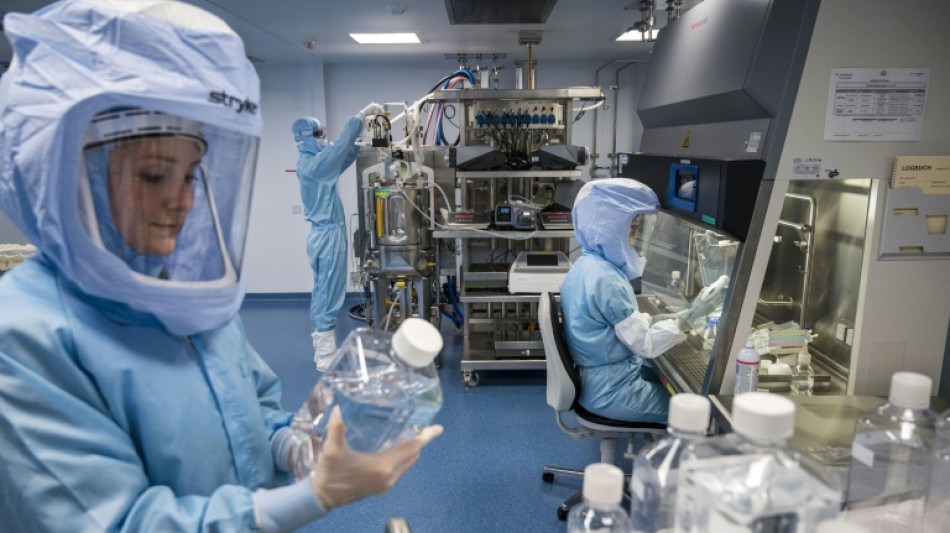
-
 Scandic Trust Group strengthens sales network with First Idea Consultant
Scandic Trust Group strengthens sales network with First Idea Consultant
-
Turmoil in tiaras at Miss Universe pageant in Thailand
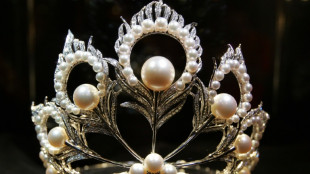
-
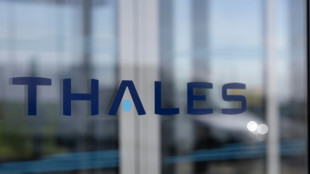 Probe into Thales defence group looking at Indonesian contract
Probe into Thales defence group looking at Indonesian contract
-
US to cancel flights as longest govt shutdown drags on
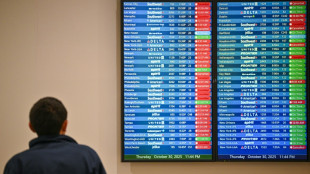
-
 Home in Nigeria, ex-refugees find themselves in a war zone
Home in Nigeria, ex-refugees find themselves in a war zone
-
Doncic's Lakers hold off Wembanyama's Spurs, Blazers silence Thunder
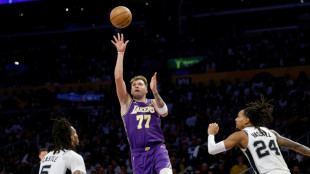
-
 For Turkey's LGBTQ community, draft law sparks existential alarm
For Turkey's LGBTQ community, draft law sparks existential alarm
-
Musk's $1 trillion pay package to face Tesla shareholder vote
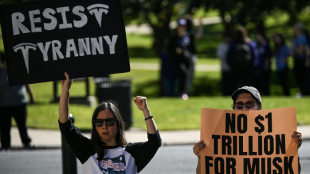
-
 Tonga rugby league star out of intensive care after seizure
Tonga rugby league star out of intensive care after seizure
-
Argentine ex-president Kirchner goes on trial in new corruption case

-
 Dams, housing, pensions: Franco disinformation flourishes online
Dams, housing, pensions: Franco disinformation flourishes online
-
Endo returns as Japan look to build on Brazil win

-
 Franco captivates young Spaniards 50 years after death
Franco captivates young Spaniards 50 years after death
-
German steel industry girds for uncertain future
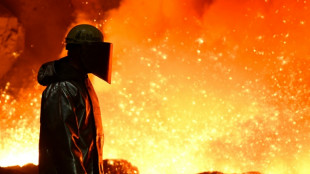
-
 IPL champions Bengaluru could be sold for 'as much as $2 billion'
IPL champions Bengaluru could be sold for 'as much as $2 billion'
-
Budget impasse threatens Belgium's ruling coalition

-
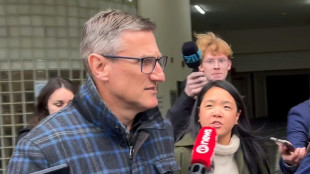 New Zealand ex-top cop admits to having material showing child abuse, bestiality
New Zealand ex-top cop admits to having material showing child abuse, bestiality
-
BoE set for finely balanced pre-budget rate call

-
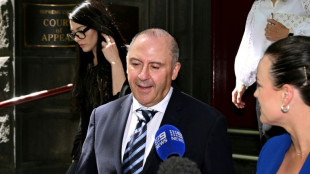 Australian kingpin obtains shorter sentence over drug charge
Australian kingpin obtains shorter sentence over drug charge
-
Weatherald's unenviable Ashes task: fill giant hole at top left by Warner

-
 Ovechkin first to score 900 NHL goals as Capitals beat Blues
Ovechkin first to score 900 NHL goals as Capitals beat Blues
-
On Mexico City's streets, vendors fight to make it to World Cup
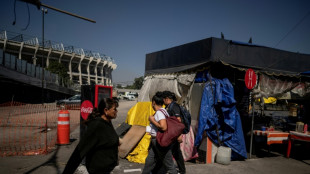
-
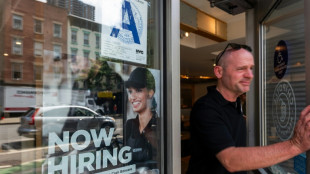 Asian markets bounce from selloff as US jobs beat forecasts
Asian markets bounce from selloff as US jobs beat forecasts
-
Philippine death toll tops 140 as typhoon heads towards Vietnam

-
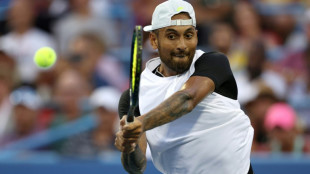 Kyrgios targets 'miracle' Australian Open return after knee improves
Kyrgios targets 'miracle' Australian Open return after knee improves
-
'AI president': Trump deepfakes glorify himself, trash rivals

-
 Belgium probes drone sightings after flights halted overnight
Belgium probes drone sightings after flights halted overnight
-
Five things to know about 'forest COP' host city Belem
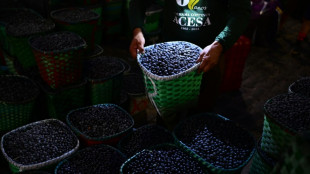
-
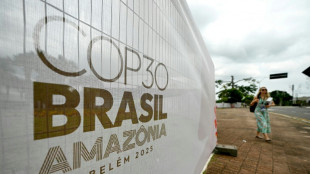 World leaders to rally climate fight ahead of Amazon summit
World leaders to rally climate fight ahead of Amazon summit
-
Engine fell off US cargo plane before deadly crash: officials

-
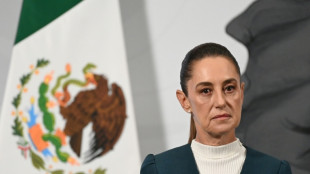 Mexican leader calls for tougher sexual harassment laws after attack
Mexican leader calls for tougher sexual harassment laws after attack
-
Meghan Markle set for big screen return: reports

-
 Japan deploys troops after wave of deadly bear attacks
Japan deploys troops after wave of deadly bear attacks
-
FIFA announce new peace prize to be awarded at World Cup draw in Washington

-
 Australia's Cummins hints at return for second Ashes Test
Australia's Cummins hints at return for second Ashes Test
-
Boeing settles with one plaintiff in 737 MAX crash trial

-
 Man City win as Inter stay perfect, Barca held in Champions League
Man City win as Inter stay perfect, Barca held in Champions League
-
French superstar DJ Snake wants new album to 'build bridges'
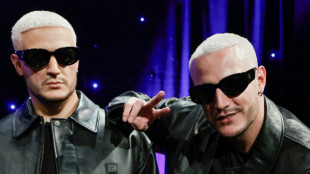
-
 Barca rescue draw at Club Brugge in six-goal thriller
Barca rescue draw at Club Brugge in six-goal thriller
-
Foden hits top form as Man City thrash Dortmund

-
 NBA officials brief Congress committee over gambling probe
NBA officials brief Congress committee over gambling probe
-
Inter beat Kairat Almaty to maintain Champions League perfection

-
 Newcastle sink Bilbao to extend Champions League winning run
Newcastle sink Bilbao to extend Champions League winning run
-
Wall Street stocks rebound after positive jobs data
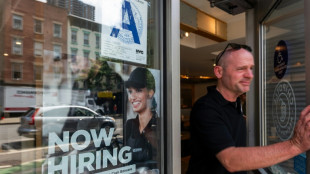
-
 LPGA, European tour partner with Saudis for new Vegas event
LPGA, European tour partner with Saudis for new Vegas event
-
Eyes turn to space to feed power-hungry data centers

-
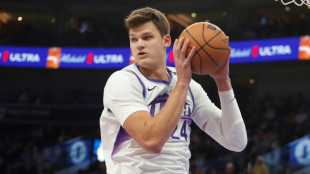 Jazz lose Kessler for season with shoulder injury
Jazz lose Kessler for season with shoulder injury
-
League scoring leader Messi among MLS Best XI squad
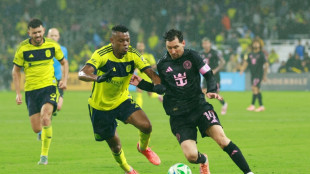
-
 MLS bans Suarez for Miami's winner-take-all playoff match
MLS bans Suarez for Miami's winner-take-all playoff match
-
McIlroy appreciates PGA of America apology for Ryder Cup abuse


From Covid to cancer: High hopes for Nobel mRNA vaccines
The coronavirus pandemic brought global renown to the mRNA technology that underpins vaccines from Pfizer/BioNTech and Moderna, and on Monday earned a Nobel Prize for two scientists who have been key to its development.
Katalin Kariko of Hungary and Drew Weissman of the United States won the Nobel Medicine Prize for their work on "nucleoside base modifications that enabled the development of effective mRNA vaccines against COVID-19".
These types of jabs are new but researchers have been working for decades to try to figure out how to use messenger RNA (ribonucleic acid) for other vaccinations and to treat illnesses from AIDS to cancer.
- How does it work? -
Messenger RNA's job in the body is to help deliver specific instructions from DNA to cells.
In the case of the Pfizer/BioNTech and Moderna jabs, lab-generated mRNA tells human cells to create antigens -- proteins that are similar to ones found in the Covid-19 virus.
Thanks to those antigens, a person's immune system learns how to fight the virus and neutralise Covid if it enters the body.
After the cells create these proteins, the body breaks down the mRNA instructions and gets rid of them.
Such direct communication with cells is revolutionary -- classic vaccines aimed to provoke an immune response by injecting a neutralised form of a virus or antigens into the system.
- Where did this come from? -
The first big breakthrough, in the late 1970s, was in using mRNA to make test-tube cells produce proteins.
A decade later, scientists were able to get the same results in mice, but mRNA still had two major drawbacks as a medical tool.
For one thing, cells in live animals resisted synthetic mRNA, provoking a dangerous immune response.
On top of that, mRNA molecules are fragile, making them difficult to deliver to the system without altering them.
In 2005, Kariko and Weissman of Penn State University published a groundbreaking study showing that a lipid -- or fat molecule -- envelope could safely deliver mRNA without negative effects.
The research caused a buzz in the pharmaceutical community and start-ups dedicated to mRNA therapies began to pop up around the world.
- What else can mRNA do? -
Scientists have worked on developing mRNA jabs for illnesses like seasonal flu, rabies and Zika, as well as those that have remained vaccine-resistant until now, including malaria and AIDS.
Researchers have also started testing personalised treatments on cancer patients, using samples of the proteins in their tumours to create specialised mRNA.
This then triggers the immune system to target specific cancer cells.
"The mRNA platform is versatile," University of Pennsylvania biochemist Norbert Pardi told AFP. "Any protein can be encoded as mRNA so there are many potential applications."
E.Gasser--VB




